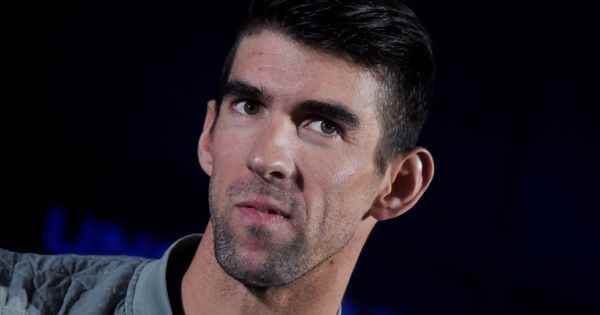Published on 12/28/2020
3 min read
Long taboo among athletes, depression comes out of the shadows.
They are more likely to say they have been in the dark, also a sign of better management of their wounds of the soul, all the more necessary to cross a Covid which abuses their horizons.
French swimmer Béryl Gastaldello, 25, plunged into the psychic abyss of severe depression in 2018. “I had fallen very, very low. I no longer had any control over my body. I was immediately put on medication“, she confided a few months ago.
This testimony from an athlete in the course of her career, well on her way to compete in the Tokyo Olympics, remains quite rare.
Australian tennis player Nick Kyrgios, 25, recently recounted his “dark and lonely situationas he battled the depression brought on by the overwhelming pace of the ATP Tour. American basketball player Kevin Love has also brought his anxiety and depression to the public.
But most of the time, it is once retired that athletes confide their slump, like the Olympic multi-medalist Michael Phelps.
“It has opened up a lot, athletes are more willing to talk about what they feel, they are humans, not robots“, explains to AFP Cécilia Delage, sports psychologist, who follows footballers of RC Lens but also divers and skiers.
“High performance sport does not necessarily rhyme with mental health“, recalls Makis Chamalidis, also a sports psychologist.”Feeling invested with a mission“, they can be “in extremes“and spend the”all might“from winning to”I’m terrible“of failure,” he explains.
The end of a career, or an injury that lasts, can also be difficult times.
At Insep (National Institute of Sport, Expertise and Performance), where the seeds of champions grow, the team of psychologists has grown in recent years.
“We have more and more requests for support from athletes on a double dimension: psychological and performance support“, explains Anaëlle Malberbe, one of the five psychologists.”Coaches are more open on the subject“, she underlines, and notable and recent fact, some also come to take advice for themselves.
“The brake is: ‘you are a high level athlete, you have no right to have flaws’. It’s wrong, we have all our points of vigilance“, she deciphers. New Zealand rugby player John Kirwan, having suffered from depression, had thus titled his book:” The All Blacks do not cry “…
However, anxiety disorders, depressive episodes, eating disorders, addictions, etc., “the athlete can encounter the same problems as everyone else“, explains Anaëlle Malherbe.
In the general population, one in five people have suffered or will suffer from depression in their lifetime.
Since 2006, top-level athletes have been subject to one psychological interview per year, two if they are minors, as part of their medical follow-up.
Risk of over-training
Are there sports that are more psychologically demanding?
“There are sports where there is a large training load, such as swimming, gym, table tennis“, explains Anaëlle Malherbe, with a risk of”overtraining“, the variant of burn-out among athletes.
“Kicking a ball is not the same as counting the tiles when you swim 15 km a day“, adds Makis Chamalidis, evoking the”solitude” from “repeat sports“.
The swimming champion Yannick Agnel, victim of a burnout, had said last year “to regret“for not having been able to benefit from sufficient psychological support.
“In football, there are a lot of players for little space, we end up with young people who over-invest in their practice and do not succeed.“, also details Cécilia Delage.
On the positive side, she says, the fact that sports psychologists are now “identified as a need and integrated into the staff“, which allows for prevention.
Makis Chamalidis also talks about the busy life of coaches, “who travel a lot, far from their families, in a hurry like lemons (…)“with accordingly”a personal life that is not always very balanced“.
With the Covid crisis, professional athletes have been put to the test. Since the end of November, Anaëlle Malherbe has observed “more minor depressive disorders“among athletes, like the general population. In question, dotted competitions, a”limited social bond“and sometimes also relatives affected by the virus.
.
dts7
